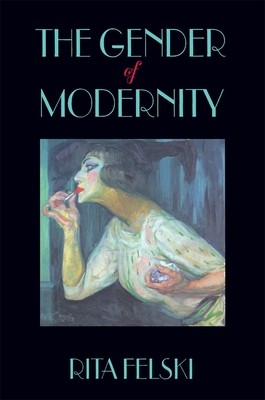
- We will send in 10–14 business days.
- Author: Rita Felski
- Publisher: Harvard University Press
- ISBN-10: 0674341945
- ISBN-13: 9780674341944
- Format: 15.4 x 23.6 x 1.6 cm, minkšti viršeliai
- Language: English
- SAVE -10% with code: EXTRA
Reviews
Description
In an innovative and invigorating exploration of the complex relations between women and the modern, Rita Felski challenges conventional male-centered theories of modernity. She also calls into question those feminist perspectives that have either demonized the modern as inherently patriarchal, or else assumed a simple opposition between men's and women's experiences of the modern world.
Combining cultural history with cultural theory, and focusing on the fin de siècle, Felski examines the gendered meanings of such notions as nostalgia, consumption, feminine writing, the popular sublime, evolution, revolution, and perversion. Her approach is comparative and interdisciplinary, covering a wide variety of texts from the English, French, and German traditions: sociological theory, realist and naturalist novels, decadent literature, political essays and speeches, sexological discourse, and sentimental popular fiction. Male and female writers from Simmel, Zola, Sacher-Masoch, and Rachilde to Marie Corelli, Wilde, and Olive Schreiner come under Felski's scrutiny as she exposes the varied and often contradictory connections between femininity and modernity. Seen through the lens of Felski's discerning eye, the last fin de siècle provides illuminating parallels with our own. And Felski's keen analysis of the matrix of modernism offers needed insight into the sense of cultural crisis brought on by postmodernism.EXTRA 10 % discount with code: EXTRA
The promotion ends in 23d.10:59:11
The discount code is valid when purchasing from 10 €. Discounts do not stack.
- Author: Rita Felski
- Publisher: Harvard University Press
- ISBN-10: 0674341945
- ISBN-13: 9780674341944
- Format: 15.4 x 23.6 x 1.6 cm, minkšti viršeliai
- Language: English English
In an innovative and invigorating exploration of the complex relations between women and the modern, Rita Felski challenges conventional male-centered theories of modernity. She also calls into question those feminist perspectives that have either demonized the modern as inherently patriarchal, or else assumed a simple opposition between men's and women's experiences of the modern world.
Combining cultural history with cultural theory, and focusing on the fin de siècle, Felski examines the gendered meanings of such notions as nostalgia, consumption, feminine writing, the popular sublime, evolution, revolution, and perversion. Her approach is comparative and interdisciplinary, covering a wide variety of texts from the English, French, and German traditions: sociological theory, realist and naturalist novels, decadent literature, political essays and speeches, sexological discourse, and sentimental popular fiction. Male and female writers from Simmel, Zola, Sacher-Masoch, and Rachilde to Marie Corelli, Wilde, and Olive Schreiner come under Felski's scrutiny as she exposes the varied and often contradictory connections between femininity and modernity. Seen through the lens of Felski's discerning eye, the last fin de siècle provides illuminating parallels with our own. And Felski's keen analysis of the matrix of modernism offers needed insight into the sense of cultural crisis brought on by postmodernism.

Reviews